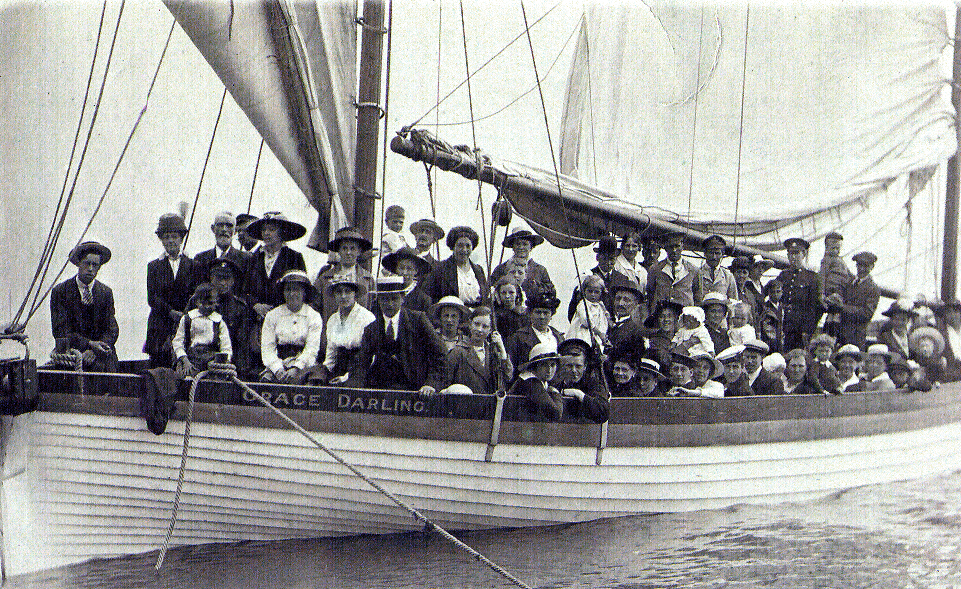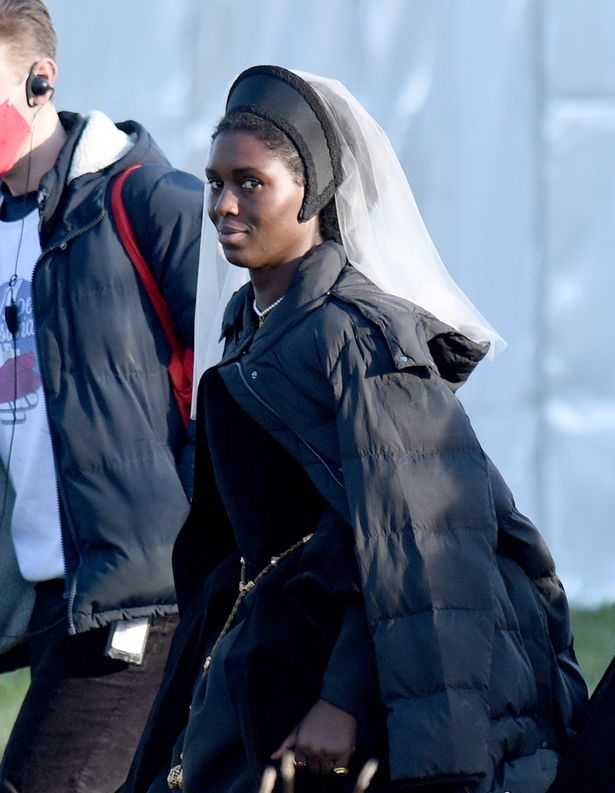There was a rather unfortunate, though amusing, slip of the tongue on yesterday’s Antiques Roadshow. It was on the lips of the seasoned expert Paul Atterbury (also famed as the model for Andy Pandy in his infancy, his mother being the puppeteer), who was examining two sea-rescue medals.
The rarer one, he said, had only been awarded once a year for especially meretricious rescues. He meant to say “meritorious” of course, but the error presumably slipped past the programme’s editors because nowadays arts graduates don’t learn English except to study the implicit bias of authors.
Anyway, it set me thinking about what kinds of rescues from shipwrecks would be especially meretricious, and I immediately thought of the Victorian super-heroine Grace Darling, the lighthouse keeper’s daughter at the isolated Longstone lighthouse in the Farne Islands of Northumbria.
In 1838, this young slip of a girl spotted a ship in distress in a storm from her bedroom window, and she and her father rowed through mountainous seas in their open boat and effected a notable rescue. Press hype had already come into being, and her undoubtedly heroic and selfless act became the toast of the land, with reporters coming out to the island to embellish her story, and the girl being plied with gifts and awards and so on.
Unfortunately she died of TB on a trip to the mainland only four years later, but her legend lived on, so that even William Booth of the Salvation Army praised her example, and eighty years after the rescue my great grand-parents (and my young grandmother) were taking pleasure trips in a boat with her name.

But given what the film-makers have done to the Lyme Regis fossil-collector and devout Christian Mary Anning, turning her into Kate Winslet as a lesbian ammonite, or something, I’m sure they could do something to update the blameless Miss Darling and make her genuinely deserving of a meretricious bravery award.
We have, after all, a contemporary model in the isolated island run by Jeffery Epstein and Ghislaine Maxwell. “The brothel in the lighthouse” has a dramatic ring to it. I’m sure the scriptwriters could conjure a story-line about Prime Minister Lord Melbourne being spotted on several occasions being rowed out to Longstone Island at night.
Grace Darling would have to be portrayed in a sympathetic manner, of course, in order to graft her genuine Victorian virtues on to a genetically modified sterile hybrid of a moral theory. She would not, therefore, be a procurer of under-age girls from the fishing villages of Northumbria, nor even a common prostitute, but the more romantic – and most importantly oppressed – “sex worker.” After all, our universities are now, it seems, promoting free tuition to students who take on sex work to pay their fees (though not to the hordes of female students shouting “Me Too” on Twitter in protest at the rape culture of our colleges).
So she would have been exiled to her lonely island (somehow) by the Patriarchy, probably escaping from a life of being sent up chimneys by the landed gentry. We would not, I think, be told quite how her sex-work played into her willingness to risk her life for shipwrecked seafarers, any more than Mary Anning’s fictional perversion (as it would certainly have seemed to the woman who wrote hymn lyrics next to fossil finds in her notebooks) has any bearing whatsoever on her prestige as a collaborator with leading palaeontologists, despite her humble background.
Grace would also just have to be played by Jodie Turner-Smith, who after portraying the black Anne Boleyn is in danger of being typecast as the archetypal diverse Englishwoman. Otherwise how would anyone be able to talk about the black lighthouse keepers of Britain in Black History Month?

That leaves just one loose end to tie up. Grace’s tragic early death would certainly not be attributed to boring old TB in the film, as it was in life. No – this is 2021, and some more fashionable disease would be required to resonate with today’s audience. It would have to be some chronic condition caught from someone she rescued from the cruise ship four years before. I wonder what that might be?
